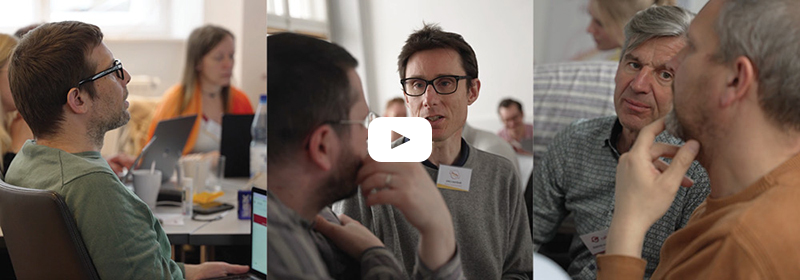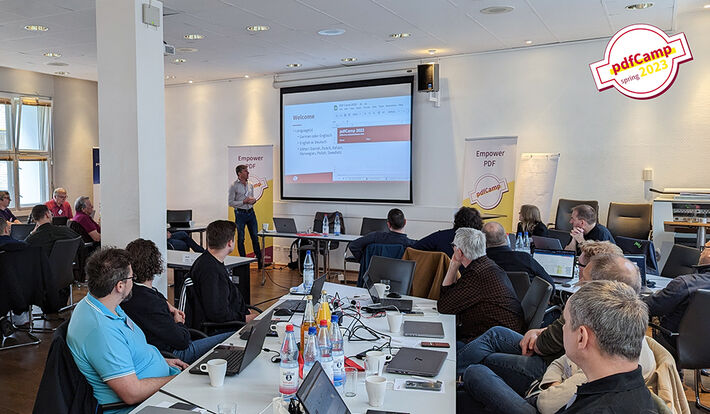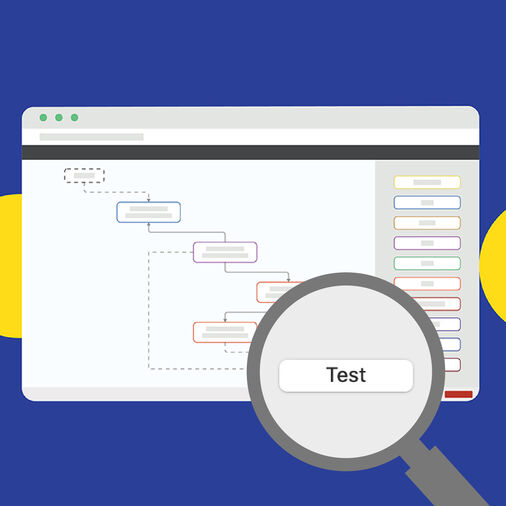In April it was finally time again – we hosted our 7th edition of pdfCamp in Berlin. If you don't know what pdfCamp is, let me tell you that it's our annual event where we bring together developers, users, integrators and resellers from around the world to work closely with the callas software and Four Pees team to learn about features, solve problems and share industry insights.
This year's pdfCamp was in great demand. Among the attendees were familiar faces like Andreas Lietz, a loyal pdfCamp attendee from OrtmannTeam:
"I've attended pdfCamp for the fifth time, and I like to come here because you can talk closely to people from callas like the development team, the CEO, and the product managers, and if you have an idea you would like to see accomplished with pdfToolbox, then they just do it. That's really amazing!
But also as a new attendee, the pdfCamp was a great opportunity to get in touch with other users and gain insights into how to get the most out of callas software products. Liam Baldwin from Print Evolved described his experience as followed:
"As a new user, I had no idea what was possible in callas, and so it opened my eyes to the possibilities, and I'm gagging to get back to work and implement some more workflows!"
In preparation for the pdfCamp, all attendees were able to provide questions, problems and topics that were addressed during the event. At the beginning of the first day, an agenda was created based on the collected topics. After that we jumped right into the first session called "Advanced Checks". The focus was on real-world challenges of identifying complex or incorrectly created cut contours in an automated workflow. Another topic was the need to detect page content to determine if a PDF file meets the specific requirements of a cutting machine. To round off this session, a Process Plan was presented that makes it possible to visualize areas where minimum distance requirements between two objects or contour lines are not met.
To cover all topics, attendees could choose between two breakout sessions on the second day. The first group focused on general PDF topics, OCR and archiving, while the second group concentrated on JavaScript. After an introduction to what is already possible with JavaScript in pdfToolbox, a group discussion followed in which participants shared their ideas for new JavaScript features.
After lunch, the session "Bad PDF" presented some helpful Checks and Fixups for identifying invalid PDF files and how they can be repaired in automated workflows. Finally, all remaining topics like PDF security, bleed generation and cloud solutions were addressed. And of course, if an attendee had a specific question or problem, there was enough time during the breaks to have a one-on-one conversation with our developers and product managers, or to network with other attendees.
As in previous cases, this pdfCamp was a resounding success that benefited both sides: The attendees left with valuable insights, knowledge, and inspiration. And we received great input and ideas that help us to further develop and optimize our products. Dietrich von Seggern, CEO of callas software, sums it up:
"pdfCamp for us is important because it gives us an opportunity to get together with people and let them know what is in the product. At the same time we see what they're struggling with, which additional requirements they might have, how we could possibly make it easier to use the product, or maybe just improve our documentation.”
And because pictures say more than a thousand words: I'm happy to present you the aftermovie of the pdfCamp 2023. If you're interested in attending one of our next pdfCamps, stay tuned. The next one is sure to come... and maybe sooner than you think.





